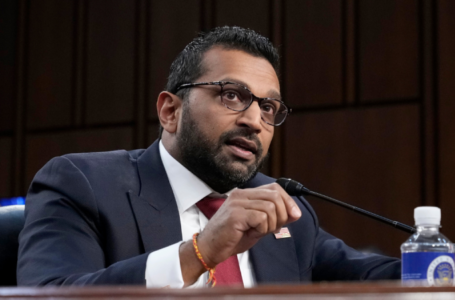Kash Patel’s confirmation as Trump FBI pick ‘will haunt you,’ Senate Dems warn GOP ahead of vote
A California bill would let workers ignore their bosses during off hours


A new bill is aiming to give Californians more work-life balance by restricting when employers can contact them during off hours.
So-called “right to disconnect” laws have already made headlines overseas. If passed, California would be the first state in the U.S. to try it.
Under the bill proposed by San Francisco Assemblymember Matt Haney, California companies would have to better specify employee “compensated” hours.
In turn, employees wouldn’t be expected to respond to calls, texts, or emails outside that timeframe — a welcomed change for remote workers like Rob Hayes.
“It feels like I have to set my phone on silent certain times, not open up my computer certain times. If I don’t right now I kind of feel like I would be left behind or not seen as someone who works hard, so I think it’s really beneficial,” said the Solano County resident.
The state’s labor commission could investigate and fine employers for interrupting employees’ personal time. Management expert professor Amira Barger believes the bill addresses workplace equity issues.
“We are dealing with an epidemic of burnout and that’s part of how we got here,” said the Cal State East Bay professor. “This is a necessary adaptation as we look towards the future of work. Employees are demanding more of employers and they are demanding a new value proposition of what work looks like.”
The bill makes exceptions for emergencies, scheduling and collective bargaining. But also aims to create boundaries in business that assembly member Haney says are missing.
“California created many of these technologies that allow people to be available 24/7, we should also lead the way in making sure we can make them sustainable for work-life balance,” he said.
But California’s Chamber of Commerce argues the bill is a step backwards for workplace flexibility and fails to consider California’s longstanding laws regarding hours worked and compensation.
Haney disagrees, saying he feels it actually does the opposite while also creating a stronger workforce.
“I’m hopeful that this increases the competitiveness of California’s industries and helps people to come back to work, or come to work in California,” he said. “I think this is actually going to help our competitiveness as a state for industries, for highly skilled workers.”











